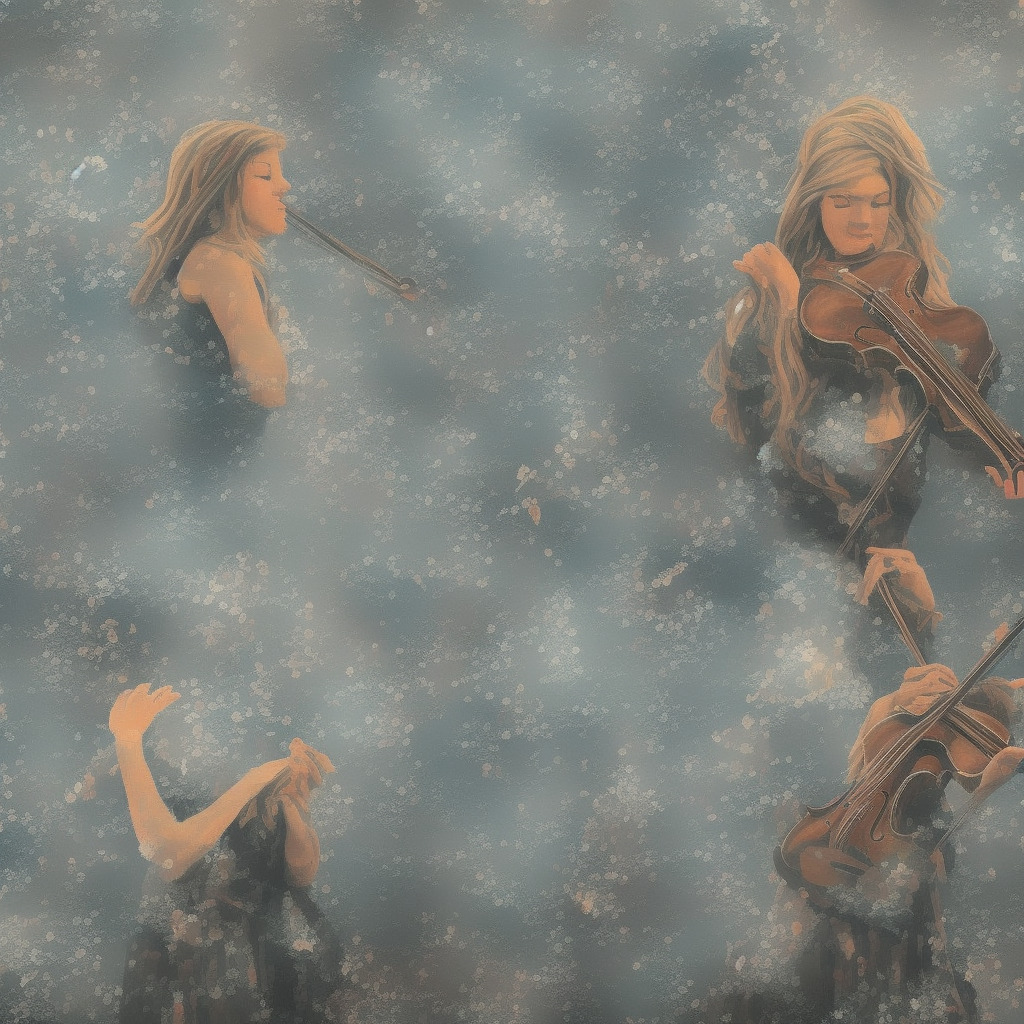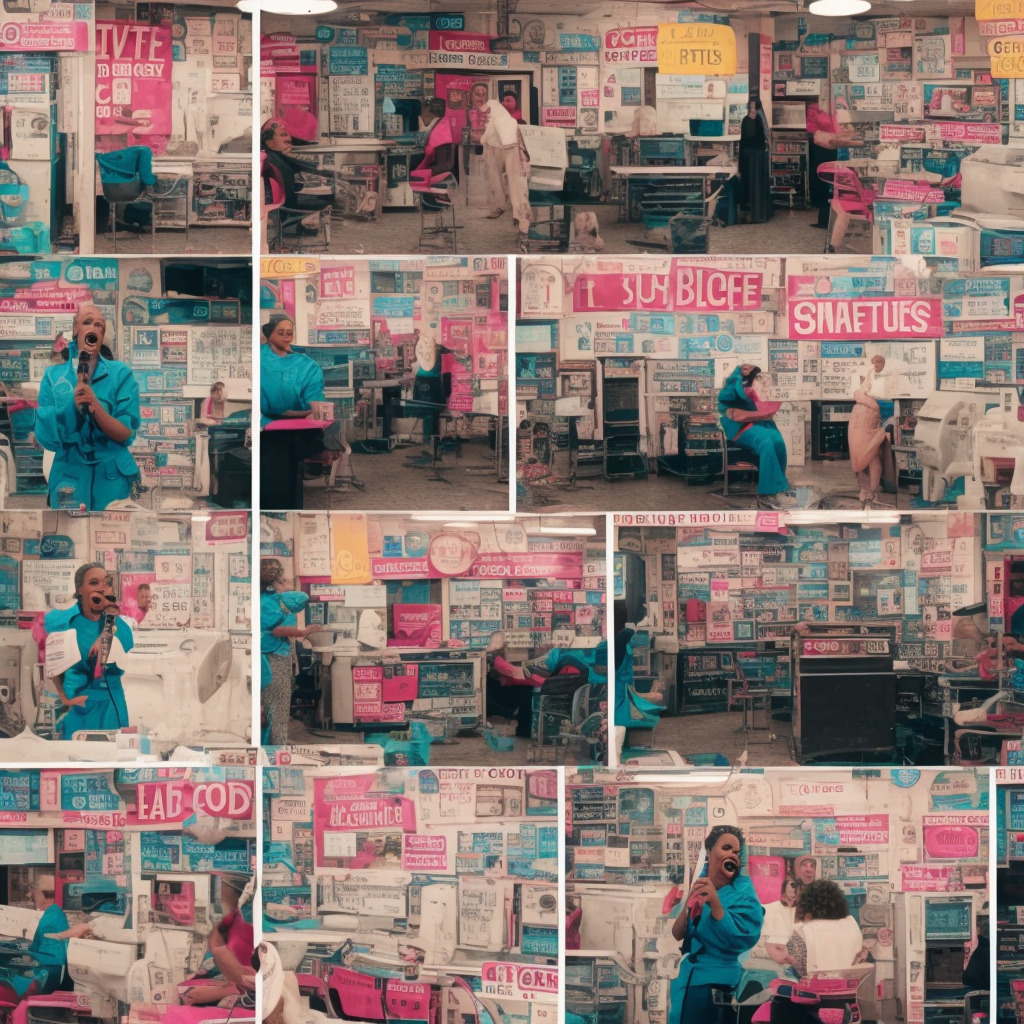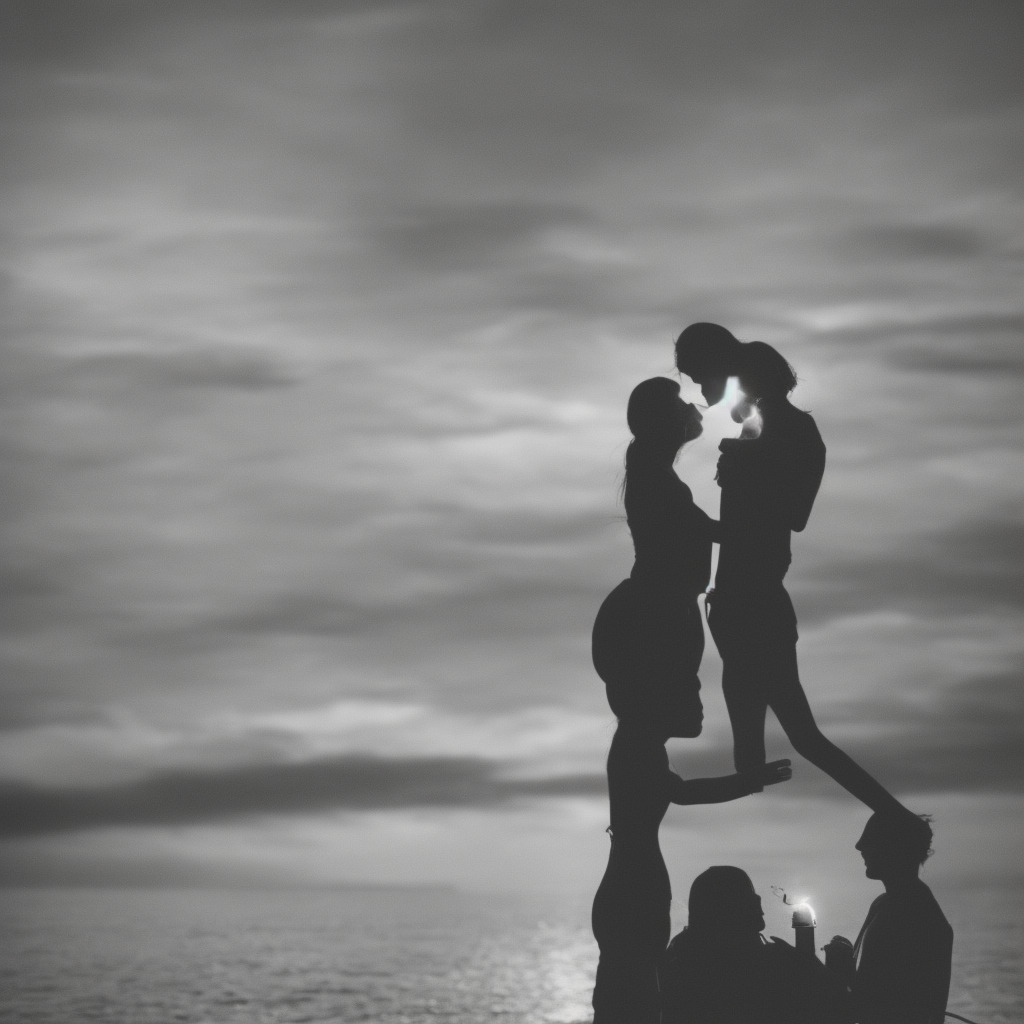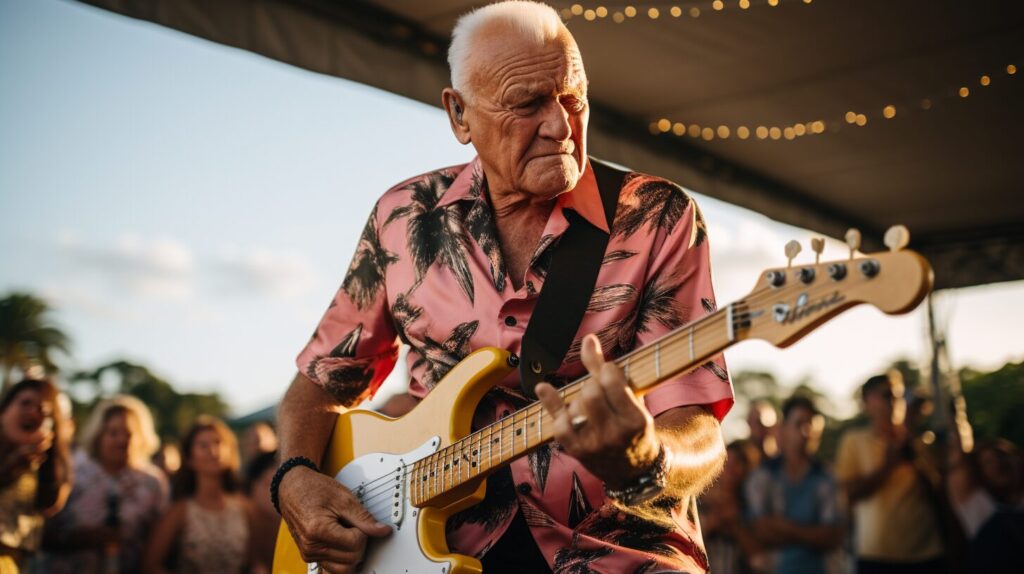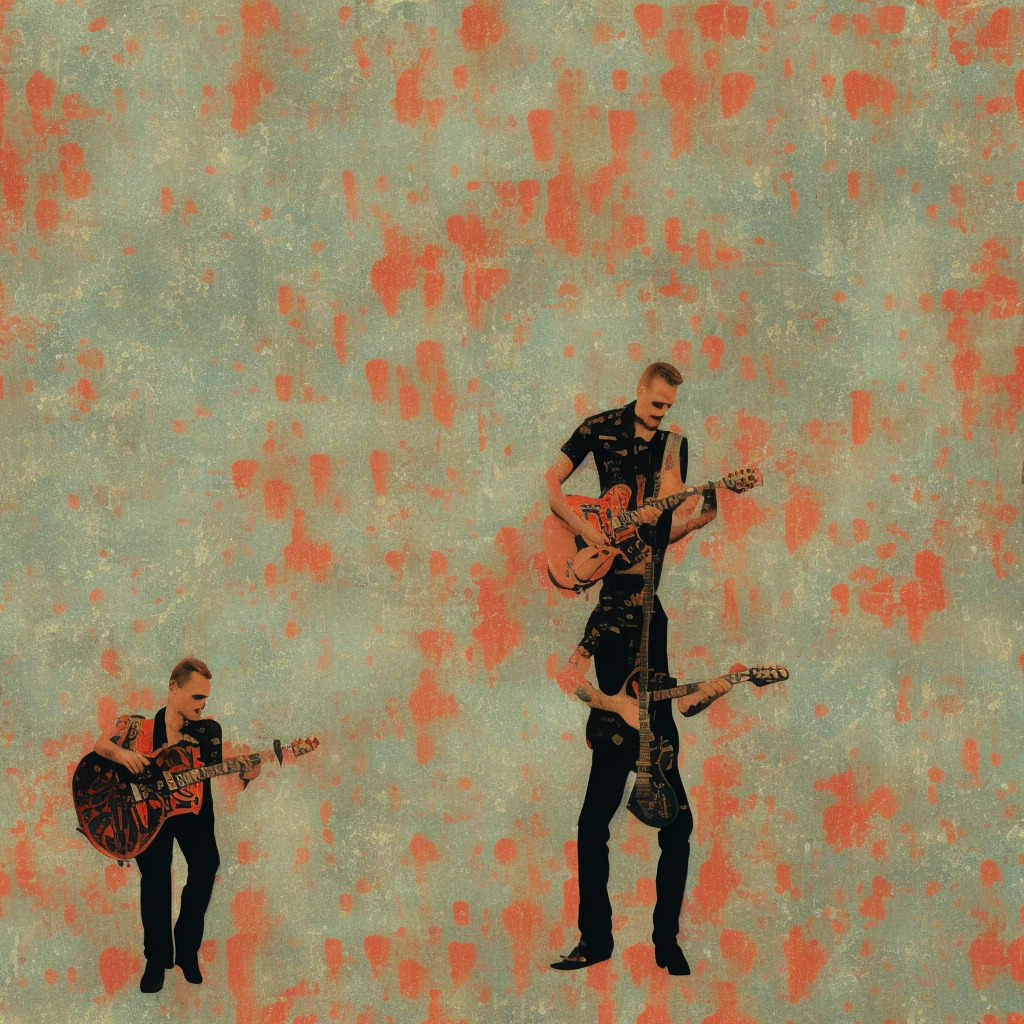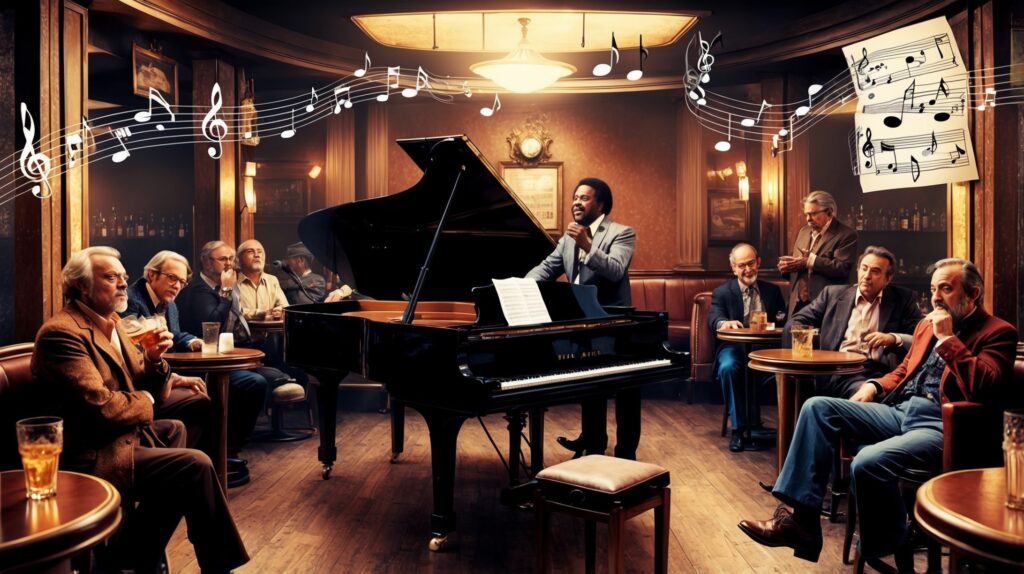🤫 Alison Krauss speaks volumes with “When You Say Nothing At All”! Did you know it was originally by Keith Whitley? 🤯 Krauss adds her own magic touch of grace! 💫✨ #AlisonKrauss #MusicTrivia #CountryClassic Read about it: tinyurl.com/yk4fvcdh
The Enchanting Voice of Bluegrass: Alison Krauss
Alison Krauss: Bluegrass enchantress with 27 Grammys, masterful Union Station bandmates, and an ethereal rendition of “When You Say Nothing At All” that continues to captivate.
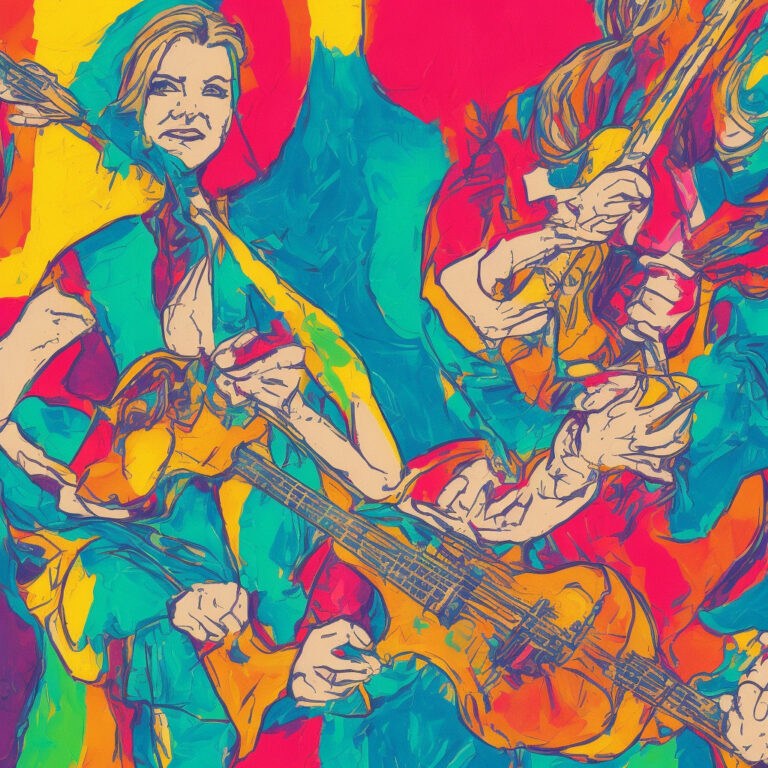
Since the beginning of her career in the early ’80s, Alison Krauss has had quite the journey through the music world. With a voice that captivates listeners and a talent for interpreting songs in a way few can, Krauss has solidified herself as a force in the bluegrass and country genres. Despite her impressive track record, though, one song, in particular, stands out as a testament to her prowess as an artist: “When You Say Nothing At All.”
Originally released by country legend Keith Whitley in 1988, “When You Say Nothing At All” was given new life when Alison Krauss covered it in 1995 with her backing band, Union Station. The track, which showcases Krauss’s ethereal vocals and the band’s virtuoso musicianship, went on to be a huge hit, topping charts and earning a Grammy nomination for the singer and her band.
Alison Krauss and Union Station are no strangers to accolades. With an incredible 27 Grammy Awards under her belt, Krauss holds the record for the most awarded female artist in Grammy history. Her collaboration with Robert Plant on the album “Raising Sand” earned them Album of the Year in 2009, further solidifying her status as a musical powerhouse.
Union Station, the band supporting Krauss for much of her career, boasts its own share of talent. Band members past and present include names like Ron Block, Barry Bales, Dan Tyminski, and Jerry Douglas – each a master of their respective instruments. Their tight-knit musicianship and dedication to the bluegrass genre have garnered them a loyal fan base and critical praise.
Despite her vast success, Krauss has faced some adversity in her career. At one point, she took a hiatus from performing live due to vocal issues, which had many fans worried about her future in music. Thankfully, she was able to overcome those struggles and continue sharing her extraordinary talents with audiences around the world.
While Alison Krauss’s career has spanned decades and produced a wealth of remarkable music, “When You Say Nothing At All” remains an iconic representation of her undeniable skill and the strong connection she has with her bandmates. Both through this song and her extensive body of work, Krauss has carved out a unique space for herself in the annals of bluegrass and country music – one that will undoubtedly be savored for years to come.
Charting the Silent Success
Alison Krauss’ “When You Say Nothing At All” speaks volumes, climbing charts and winning hearts worldwide with its powerful, soulful silence.

“When You Say Nothing At All” by Alison Krauss was released on July 4, 1995 as a single from the compilation album “Keith Whitley: A Tribute Album.” This track made substantial strides on the charts, proving that silence indeed speaks volumes.
Upon its release, the song entered the Billboard Hot Country Songs chart at a moderate position. However, it didn’t take long for it to climb the ranks and peak at an impressive #3 spot on October 14, 1995. This was an undeniable testament to the power and resonance of this heartfelt ballad. In addition to its success on the Hot Country Songs chart, “When You Say Nothing At All” also had a lasting impact on the Billboard Hot 100, where it reached #53 on November 4, 1995. These chart positions solidify the song’s influence and widespread appeal, even beyond the realm of country music.
On the international front, “When You Say Nothing At All” made its way onto the Canadian RPM Country Tracks chart, where it outperformed its US standing by reaching the highly coveted #1 spot on November 6, 1995. This achievement undoubtedly demonstrates the song’s universal appeal and speaks to the emotional connection it fosters with listeners.
Furthermore, “When You Say Nothing At All” garnered several accolades and recognition for its success. In 1996, the song received the prestigious Single of the Year award from the International Bluegrass Music Association. It was also nominated for Best Female Country Vocal Performance at the 38th Annual Grammy Awards, further solidifying its place in music history.
In summary, “When You Say Nothing At All” by Alison Krauss has undoubtedly left its mark on the charts and in the hearts of music lovers around the world. Its chart positions and accolades bear witness to the song’s enduring impact and the power of its emotionally charged message.
Dissecting the Timeless Lyrics
It’s amazing how you can speak right to my heart
Without saying a word, you can light up the dark
Try as I may I could never explain
What I hear when you don’t say a thing
The smile on your face lets me know that you need me
There’s a truth in your eyes saying you’ll never leave me
The touch of your hand says you’ll catch me if ever I fall
You say it best when you say nothing at all
All day long I can hear people talking out loud
But when you hold me near, you drown out the crowd
Old Mister Webster could never define
What’s being said between your heart and mine
The smile on your face lets me know that you need me
There’s a truth in your eyes saying you’ll never leave me
The touch of your hand says you’ll catch me if ever I fall
You say it best when you say nothing at all
“When You Say Nothing At All” is an iconic ballad by Alison Krauss, released in 1995, which beautifully captures the essence of love and communication without the need for words. The lyrics of this song portray a sense of comfort and assurance that comes from the simple, yet powerful gestures of love.
The song was penned during a time when people were experiencing significant cultural and technological changes. The 90s era saw an unprecedented growth in the digital world, leading to new and increasingly efficient ways of communication, sometimes at the expense of personal interactions. The lyrics of the song serve as a reminder that sometimes the most meaningful connections can be made without saying a word – a message that transcends borders, generations, and time.
The song’s chorus emphasizes the importance of non-verbal communication in relationships, as the protagonist believes that their partner “says it best when [they] say nothing at all.” This sentiment is a testament to the connection they share, demonstrating that their bond is so strong, words are no longer necessary to convey their feelings.
In conclusion, the lyrics of “When You Say Nothing At All” by Alison Krauss remind us that some of the most powerful emotions can be expressed without uttering a single word. Its timeless message perfectly encapsulates the spirit of the time, and the universal desire for a love that speaks volumes through silence.
Delving into the Visuals: When You Say Nothing At All’s Music Video
Discover the timeless elegance and heartfelt emotions captured in Alison Krauss’s “When You Say Nothing At All” music video, directed by the renowned Jim Shea.
The music video for the song “When You Say Nothing At All” by Alison Krauss is a beautifully crafted piece that truly captures the essence of the song’s heartfelt lyrics. Directed by the talented Jim Shea, who has worked with renowned artists such as Martina McBride, Dolly Parton, and Gretchen Wilson, the music video for “When You Say Nothing At All” is an integral part of the song’s legacy.
Shot in black and white, the music video creates an atmosphere of timeless elegance that perfectly complements the gentle instrumentation and tender vocals of the track. With a focus on intimate close-ups and subtle camera movements, Shea captures the emotions of the song with an honest and raw approach. The simplicity of the music video allows the viewer to truly immerse themselves in the music and serves as a reminder of the power of love and connection.
The video features Alison Krauss herself, along with her band Union Station, performing the song amidst a serene and picturesque landscape. As the camera pans across the tranquil setting, the video portrays moments of love and companionship between various couples, showcasing the ways in which love speaks through silence and understanding. This artistic choice adds depth to the song’s message and allows the viewer to connect on a deeper level with the emotions conveyed through the lyrics.
Despite the relatively modest budget allocated for the production of the music video, it does not fall short in terms of artistic creativity and visual impact. The decision to shoot in black and white not only sets it apart from other music videos of the time but also adds an element of nostalgia that resonates with many viewers.
Over the years, the music video for “When You Say Nothing At All” has accumulated millions of views on streaming platforms such as YouTube and has inspired countless fan videos, covers, and tributes. The enduring appeal of the song and its music video is a testament to the timeless nature of true love and the power of music to convey complex emotions in a simple and genuine manner.
With its beautiful cinematography, heartfelt message, and Alison Krauss’s enchanting performance, the music video for “When You Say Nothing At All” will undoubtedly continue to touch hearts and inspire creators for years to come.
The Masterminds Behind the Timeless Classic
The heartfelt ballad “When You Say Nothing At All” owes much of its emotional depth to its talented composers, Paul Overstreet and Don Schlitz. Both seasoned songwriters in the country music world, they have numerous hits under their belts. Paul Overstreet has contributed to the success of artists like Randy Travis with his songwriting skills, penning hits such as “Forever and Ever, Amen” and “On the Other Hand”. Don Schlitz, on the other hand, is best known for writing the Kenny Rogers classic “The Gambler”, which earned him a well-deserved spot in the Country Music Hall of Fame. Overstreet and Schlitz’s ability to craft meaningful and touching lyrics is certainly evident in “When You Say Nothing At All”, as the song continues to resonate with listeners, decades after its initial release.
Awards, Accolades, and Impact on the Screen
A timeless classic, Alison Krauss’ “When You Say Nothing At All” captivates hearts with its tender lyrics and enduring influence, gracing screens and inspiring artists for over two decades.
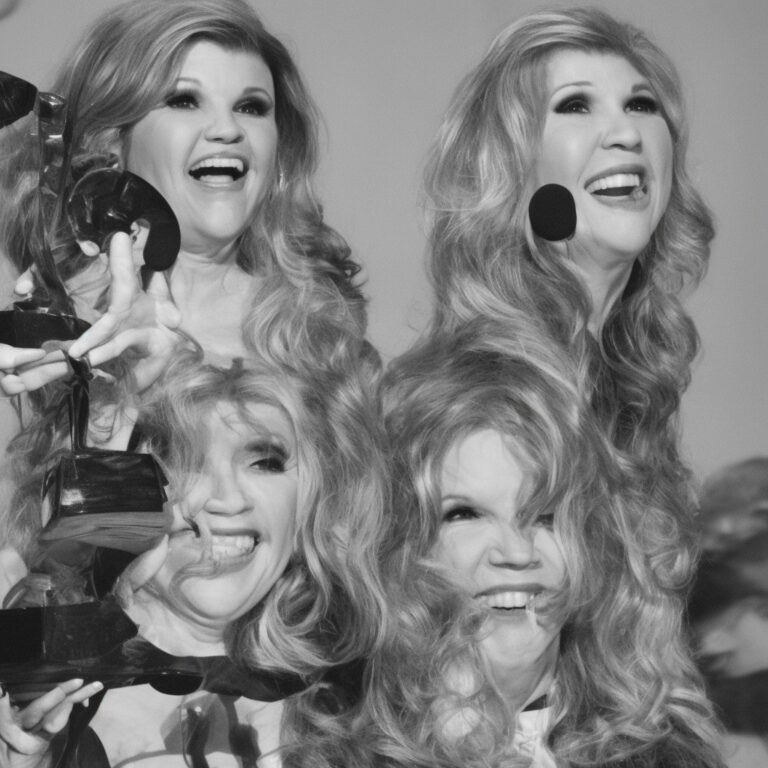
“When You Say Nothing At All,” performed by Alison Krauss, has received several awards and accolades over the years, solidifying its status as a true classic in the world of music. The song was originally released in 1995 and quickly gained recognition for its sweet and tender lyrics, which have resonated with listeners across generations. It won the 1995 Country Music Association’s Single of the Year award, and Krauss herself was nominated for a Grammy in the Best Female Country Vocal Performance category that same year.
The popularity and emotional impact of “When You Say Nothing At All” have led to its inclusion in various forms of media. In 1999, the song was featured in the soundtrack of the romantic drama film “Notting Hill,” starring Hugh Grant and Julia Roberts. This association with the film has further elevated the song’s status and helped it reach a wider audience. Additionally, the track has made appearances in several TV shows and commercials, again showcasing its lasting appeal.
Over the past two decades, “When You Say Nothing At All” has been covered by numerous artists, highlighting its enduring influence in the music industry. One notable version is that of Irish singer Ronan Keating, who recorded the song for the “Notting Hill” soundtrack in 1999. Keating’s rendition reached the top of the charts in several countries, including the United Kingdom, where it held the number one spot for two weeks. Other artists who have covered the song include Keith Whitley, who originally recorded the track in 1988, and Boyzone, further demonstrating the versatility and timelessness of this tender ballad.
In conclusion, the numerous awards, accolades, and media appearances of “When You Say Nothing At All” are a true testament to the song’s emotional resonance and widespread appeal. With its heartfelt lyrics and beautiful melody, this classic track continues to capture the hearts of listeners around the world and inspire artists to put their own spin on it.
Breaking Down the Musical Elements
“When You Say Nothing At All” is a beautifully crafted ballad that showcases Alison Krauss’s melodic sensibilities and vocal prowess. The song is written in the key of G Major, a popular key for country and bluegrass music, and features a moderate tempo of around 78 beats per minute. This tempo provides the perfect canvas for Krauss’s emotive delivery and allows listeners to truly immerse themselves in the heartfelt lyrics.
The song’s chord structure follows a fairly standard progression for a ballad, with the verses predominantly consisting of the chords G, D, C, and G/B. This simple yet effective progression provides a solid foundation for the vocals to soar above, while also lending a sense of familiarity and comfort to the listener. The pre-chorus introduces an A7 chord, which adds a touch of tension and anticipation, effectively leading into the chorus.
Interestingly, the chorus of “When You Say Nothing At All” incorporates a slight modulation from G Major to E minor, with the chords Em, D, C, and G/B making up the progression. This shift to the relative minor key adds a layer of emotional depth to the song and beautifully complements the poignant lyrics. The chorus then resolves back to G Major, maintaining a sense of cohesion and continuity throughout the piece.
One of the standout features of this song is the delicate balance between the vocal melody and the instrumental arrangement. Krauss’s voice is expertly supported by a tasteful blend of acoustic guitar, piano, and fiddle, with each instrument playing an essential role in the overall texture of the track. The arrangement never overwhelms the vocals, allowing Krauss to truly shine as she delivers each line with a perfect blend of power and vulnerability.
In terms of song structure, “When You Say Nothing At All” follows a classic verse-pre-chorus-chorus pattern, with a brief instrumental interlude after the second chorus. This arrangement allows the song to build naturally and creates a satisfying ebb and flow. The final chorus is repeated twice, with the second repetition featuring subtle variations in the vocal melody, adding an extra level of emotional intensity to the song’s conclusion.
Overall, “When You Say Nothing At All” is a masterclass in songwriting and arrangement, showcasing Alison Krauss’s incredible talent as both a vocalist and musician. The song’s timeless chord progressions, rich instrumental textures, and heartfelt lyrics come together to create a truly unforgettable listening experience.

